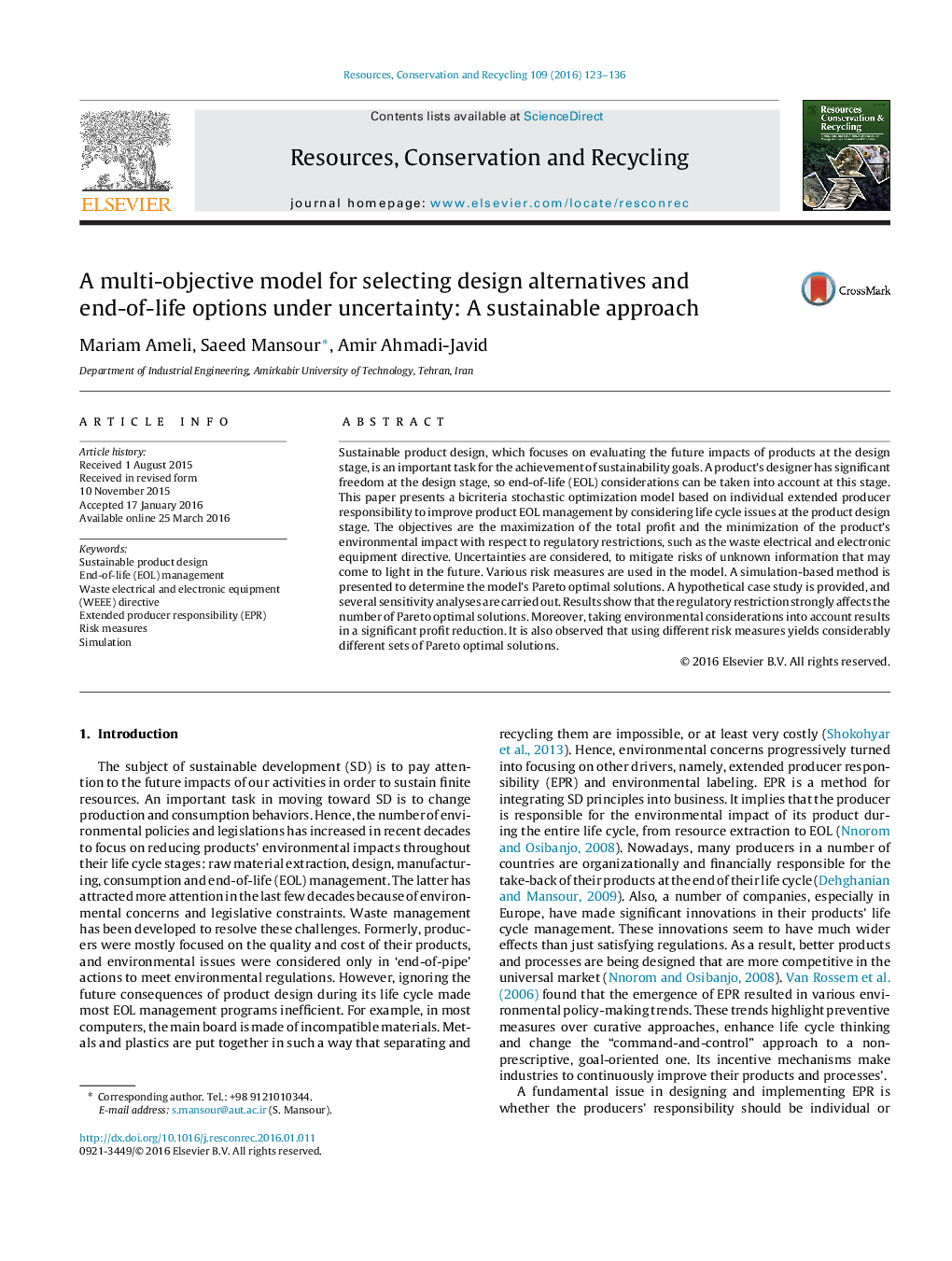| Article ID | Journal | Published Year | Pages | File Type |
|---|---|---|---|---|
| 7494914 | Resources, Conservation and Recycling | 2016 | 14 Pages |
Abstract
Sustainable product design, which focuses on evaluating the future impacts of products at the design stage, is an important task for the achievement of sustainability goals. A product's designer has significant freedom at the design stage, so end-of-life (EOL) considerations can be taken into account at this stage. This paper presents a bicriteria stochastic optimization model based on individual extended producer responsibility to improve product EOL management by considering life cycle issues at the product design stage. The objectives are the maximization of the total profit and the minimization of the product's environmental impact with respect to regulatory restrictions, such as the waste electrical and electronic equipment directive. Uncertainties are considered, to mitigate risks of unknown information that may come to light in the future. Various risk measures are used in the model. A simulation-based method is presented to determine the model's Pareto optimal solutions. A hypothetical case study is provided, and several sensitivity analyses are carried out. Results show that the regulatory restriction strongly affects the number of Pareto optimal solutions. Moreover, taking environmental considerations into account results in a significant profit reduction. It is also observed that using different risk measures yields considerably different sets of Pareto optimal solutions.
Related Topics
Physical Sciences and Engineering
Energy
Renewable Energy, Sustainability and the Environment
Authors
Mariam Ameli, Saeed Mansour, Amir Ahmadi-Javid,
